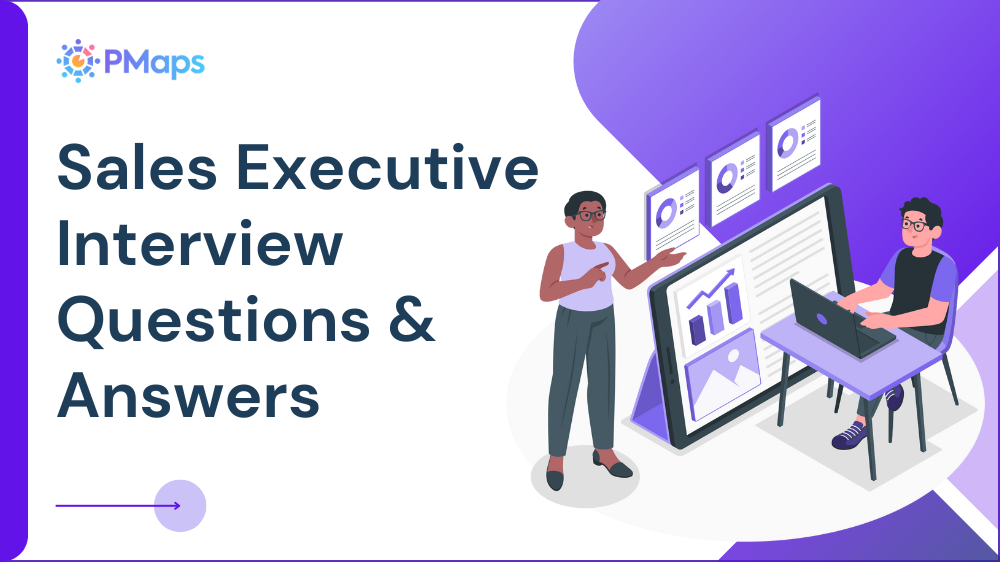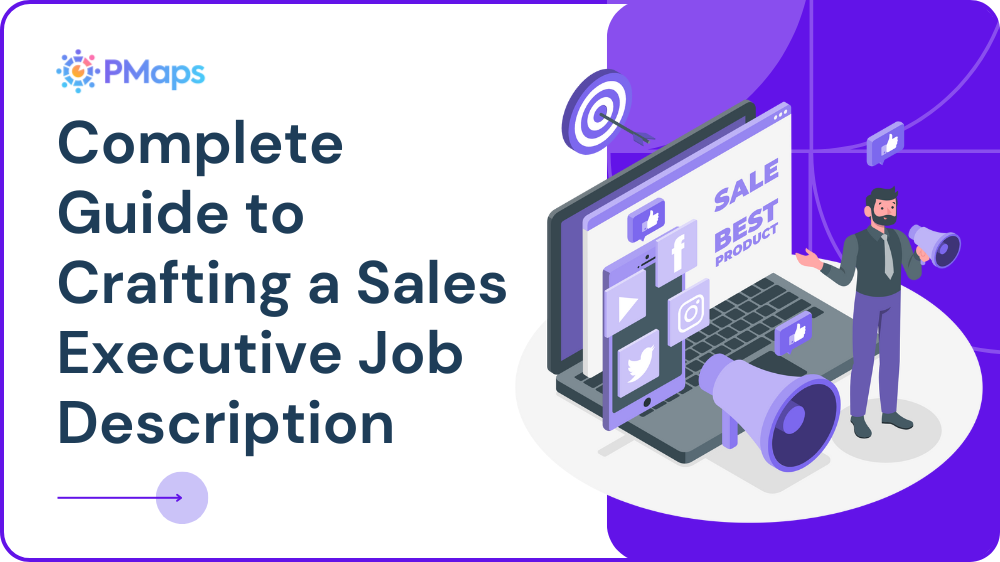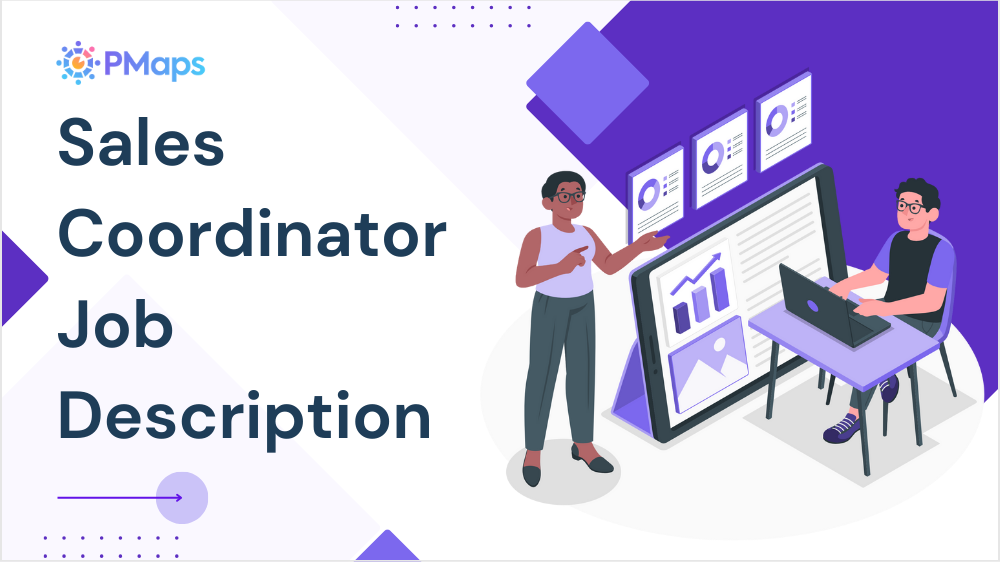
Sales executive interview questions play a decisive role in identifying candidates who not only meet targets but also drive sustainable revenue growth. According to LinkedIn’s Global State of Sales report (2023), top-performing salespeople are 33% more likely to focus on relationship-building rather than pushing deals—highlighting the shift toward value-led, consultative selling.
Validate your instincts—run the Sales Executive Assessment before you offer.

Today’s sales executives operate in high-stakes environments. Whether managing field operations, strategic accounts, or distribution channels, they must balance pipeline ownership with negotiation, CRM discipline, and cross-functional collaboration. This guide equips hiring managers, sales leaders, and HR teams with a structured approach to evaluate talent effectively. Inside, you’ll find:
- Foundational questions to assess core sales instincts
- Behavioral and situational scenarios tailored to executive-level selling
- Role-specific questions for B2B, field, and channel sales models
- Interviewer tips to avoid surface-level responses and uncover real capability
Want to be sure? Revisit the Sales Executive Job Description now.
General Interview Questions for Sales Executives
In a sales executive interview, general questions serve to evaluate a candidate’s approach to enterprise selling, pipeline ownership, and strategic alignment. These prompts move beyond surface-level ambition and help you assess whether the candidate understands the broader business context, market dynamics, and long-cycle deal structures.
Sample Candidate Answer: When I take over a new territory, I start with a quick audit—identifying active accounts, dormant ones, and whitespace. I segment based on potential and begin outreach with a mix of high-value targets and warm leads. While I enjoy hunting, I set weekly check-ins for existing accounts too—retention matters just as much as acquisition at this level.
These five questions provide a strong starting point for any evaluation process, whether you're hiring for corporate, channel, or field sales executive roles.
1. How do you typically approach a new sales territory or account list?
What it Assesses: Planning ability, market penetration strategy, and business development discipline.
What to Look For:
Candidates should demonstrate how they segment markets, prioritize high-value accounts, and build territory action plans. Look for use of data, research, and outreach sequencing.
What to Avoid:
Ad hoc responses like “I just start calling” signal a lack of structure and strategic thinking.
2. How do you balance hunting for new business with maintaining existing relationships?
What it Assesses: Time management, client retention strategy, and pipeline balance.
What to Look For:
Listen for structured scheduling, use of CRM tools, and planned engagement with both prospects and key accounts. Balance is key in executive roles.
What to Avoid:
Overemphasis on one side—either ignoring upsell/cross-sell opportunities or neglecting prospecting efforts.
3. What sales methodologies or frameworks are you most comfortable using?
What it Assesses: Process maturity, training background, and alignment with modern selling approaches.
What to Look For:
Candidates who mention SPIN Selling, Challenger, MEDDIC, or consultative techniques—and who can explain how they’ve applied them in the field.
What to Avoid:
Blank stares or outdated references (e.g., “I just follow my gut”) that reflect lack of process awareness.
4. How do you prepare for a high-stakes pitch to a senior buyer or decision-making committee?
What it Assesses: Executive communication, pitch readiness, and stakeholder alignment.
What to Look For:
Mentions of pre-meeting research, tailored decks, objection anticipation, and strategic messaging based on buyer roles.
What to Avoid:
Generic preparation like “I just rehearse my pitch.” High-value deals need tailored strategies.
5. How do you measure your success beyond hitting quotas?
What it Assesses: Business alignment, long-term thinking, and customer lifetime value perspective.
What to Look For:
Strong answers reference metrics such as client retention rate, deal quality, repeat business, average deal size, and sales cycle efficiency.
What to Avoid:
Quota obsession without regard for sustainable revenue growth or customer satisfaction.
Behavioral Interview Questions
Behavioral questions provide a real-world lens into how sales executives have responded to challenges in the past. For senior roles, this includes managing enterprise accounts, navigating cross-functional objections, and driving long-cycle deals to close. The STAR method (Situation, Task, Action, Result) remains the ideal framework for prompting structured, insight-rich responses.
Sample Candidate Answer: I once led a deal with five decision-makers across legal, finance, and IT. I mapped out each stakeholder’s priorities and tailored my messaging accordingly. We brought in our product team for deeper demos and legal for fast-tracking compliance. I also coached a junior rep through parts of the process—it was a win for both the client and the team.
These questions help interviewers uncover whether a candidate possesses the judgment, resilience, and customer focus required at the executive level—especially when paired with insights from a sales executive assessment.
1. Tell me about a time you closed a complex deal with multiple decision-makers involved.
Why Ask This:
Enterprise sales rarely involve a single contact. This question reveals how well the candidate builds consensus, adapts messaging, and navigates stakeholder dynamics.
What to Listen For:
Mention of account mapping, tailored pitches per persona, internal collaboration (e.g., with product or finance), and structured follow-ups.
2. Describe a time you failed to meet a sales target. How did you respond?
Why Ask This:
Even top performers encounter setbacks. This question explores resilience, self-awareness, and corrective planning.
What to Listen For:
Honest assessment of what went wrong, willingness to take ownership, and concrete strategies for recovery. Avoid responses that externalize blame.
3. Share an example where you successfully reactivated a dormant or lost account.
Why Ask This:
Re-engaging lost clients requires strategic patience and trust rebuilding. This scenario reflects relationship management and long-term pipeline thinking.
What to Listen For:
Structured outreach, timing considerations, value reminders, and an understanding of why the account went cold in the first place.
4. Tell me about a time you influenced internal stakeholders to support a custom client request.
Why Ask This:
Sales executives often act as internal champions for key deals. This question assesses their ability to negotiate internally without overpromising.
What to Listen For:
Clear internal communication, compromise building, and alignment of client goals with company resources or limitations.
5. Describe how you coached or supported a junior sales team member to win a deal.
Why Ask This:
Sales executives often mentor or lead others, especially in matrix or channel-based models. This tests leadership without authority.
What to Listen For:
Patience, process guidance, shared strategy development, and clear follow-up support that helped the deal progress or close.
Situational Interview Questions
Situational questions are forward-looking. They help interviewers evaluate a candidate’s judgment, adaptability, and leadership instincts when faced with pressure, ambiguity, or conflict. In a sales executive interview, these scenarios simulate complex decisions common in enterprise selling, channel management, and field execution.
Sample Candidate Answer: If a key client pushes for a discount I can’t give, I focus the conversation on value and outcomes. I loop in internal teams if flexibility exists but hold firm on pricing integrity. In low-performing territories, I build a 30-day plan—clean data, reconnect with top accounts, and get quick wins. For underperforming partners, I’d initiate performance reviews and build a joint recovery path before making bigger decisions.
Responses to these prompts should be assessed alongside a channel sales executive assessment, offering a layered view of predictive capability.
1. A high-value client is demanding an aggressive discount you can't authorize. How would you handle the conversation?
Why Ask This:
This scenario tests value positioning, negotiation strategy, and client relationship management under pricing pressure.
What to Listen For:
Defending value over price, consulting internal teams for flexibility, and maintaining professionalism without damaging trust. Avoid immediate concessions or vague promises.
2. You’ve just inherited a territory with low performance and minimal client data. What’s your first 30-day action plan?
Why Ask This:
Turnaround thinking is essential in executive sales roles. This assesses planning, prioritization, and execution agility.
What to Listen For:
Data audit, client segmentation, discovery meetings, CRM clean-up, and establishing performance baselines. Avoid overly vague or reactive approaches.
3. Imagine a channel partner is underperforming but critical to your region’s distribution. What would you do?
Why Ask This:
This question reveals the candidate’s ability to manage channel relationships, balance accountability with diplomacy, and protect market presence.
What to Listen For:
Scheduled performance reviews, joint business planning, enablement initiatives, or escalation pathways. Avoid immediate replacement or passive acceptance.
4. Your top prospect suddenly brings in procurement with unexpected compliance demands. How do you respond?
Why Ask This:
Late-stage hurdles are common in B2B deals. This tests composure, resource alignment, and ability to close without delay.
What to Listen For:
Quick internal coordination (legal, finance, operations), empathy with the client’s position, and proactive handling of objections. Avoid panic or resistance to change.
Technical or Role-Specific Interview Questions
Sales executives must do more than pitch—they must analyze data, manage accounts strategically, adopt the right tools, and align with organizational goals. This section helps evaluate their ability to connect operational tactics with top-line impact, particularly in B2B, enterprise, and territory-led models. Whether you're hiring for corporate, channel, or field sales executive roles, these questions reveal a candidate’s ability to perform—not just sell.
Sample Candidate Answer: I track my performance across products using Salesforce dashboards—pulling data by segment, deal stage, and close velocity. I’ve used Salesloft and Gong for outreach and call coaching. For forecasting, I use a weighted pipeline, update probabilities weekly, and communicate shifts to leadership with reasons and next steps. I align closely with product and finance during complex deals to keep execution tight.
1. How do you track performance across a multi-product or multi-channel sales portfolio?
Why Ask This:
Sales executives are often responsible for multiple revenue streams. This question assesses analytical capability and reporting habits.
What to Listen For:
Use of dashboards, KPI tracking (revenue by segment, win/loss rate, churn), and ability to draw insights from trends. Look for regular review cycles and decision-driven reporting.
2. What sales tools or platforms have you worked with, and how do they support your strategy?
Why Ask This:
Tool fluency affects speed, visibility, and consistency. This helps confirm digital adaptability and tech-stack comfort.
What to Listen For:
Mention of CRMs (Salesforce, Zoho, Dynamics), sales enablement platforms (Outreach, Salesloft), and how they aid pipeline management or forecasting.
3. How do you forecast revenue and communicate pipeline status to leadership?
Why Ask This:
Executives must be able to provide clear, accurate projections that leadership can act on.
What to Listen For:
Weighted pipeline methodology, deal stage definitions, probability scoring, and how they communicate changes in forecast. Avoid candidates who rely on gut feel or lack data-backed updates.
4. How do you manage cross-functional alignment in enterprise sales?
Why Ask This:
Large deals often involve product, finance, legal, and marketing. This tests the ability to coordinate internal efforts while keeping momentum.
What to Listen For:
Experience leading deal squads, clear stakeholder mapping, and managing timelines across departments. Look for structured internal alignment strategies.
5. How do you tailor your approach when selling to different industries or verticals?
Why Ask This:
Sales executives often handle diverse clients. This question evaluates research habits and messaging adaptability.
What to Listen For:
Industry-specific insights, persona mapping, content customization, and examples of adapting pitches. Avoid one-size-fits-all approaches or reliance on generic scripts.
Pro Tips for Interviewing as a Sales Executive
Hiring a sales executive isn’t just about assessing whether a candidate can sell—it’s about evaluating whether they can drive growth, lead strategic conversations, and adapt to evolving buyer behaviors. The stakes are higher, the cycles are longer, and the margin for error is smaller. Use these six structured tips to elevate your interview process and confidently select executives who can perform—and lead—under pressure.
1. Prioritize Strategic Reasoning Over Tactical Wins
What it Reveals: Commercial judgment, deal architecture, and executive-level planning.
Rather than being impressed by big logos or closed-won deal values alone, dig deeper into how those outcomes were achieved. Ask the candidate to deconstruct the strategy behind a successful deal: How was the account mapped? What internal blockers were overcome? What differentiated their pitch from competitors?
Strong candidates will talk about deal pacing, stakeholder segmentation, and value narrative—not just volume of activity or luck. This helps you understand whether their success is repeatable in your organization’s context.
2. Use Behavioral Event Interviewing (BEI) for Complex Sales Scenarios
What it Reveals: Depth of experience under high-pressure, high-value conditions.
Sales executives operate in ambiguity. A good interviewer uses the BEI technique to ask for real, past events that required cross-functional collaboration, turnaround thinking, or persuasion of resistant stakeholders. For example, prompt with: “Tell me about a time a strategic deal nearly fell apart and how you brought it back.”
Listen closely to how they define the situation, what steps they took independently, and how they evaluated outcomes. This reveals not only competence, but how they think under pressure—essential in enterprise sales.
3. Look for Cross-Functional Selling Skills
What it Reveals: Internal influence, team orchestration, and deal leadership beyond the front line.
Closing complex sales often requires working with legal, marketing, operations, finance, or even product development. Ask for examples where the candidate aligned these internal teams to win a deal or deliver custom client solutions.
Effective sales executives don’t just “sell”—they build internal coalitions. Look for signs of proactive alignment, compromise facilitation, and managing internal resistance. These are the qualities that support long-term success in field, enterprise, or channel sales executive roles.
4. Score Responses Against Executive-Level Sales Competencies
What it Reveals: Objective fit for the role beyond surface charisma.
Before the interview, clarify which competencies matter most for this specific executive role. Is it account expansion? Channel enablement? Forecast accuracy? Multi-stakeholder negotiation?
Create a rubric to score answers in real time. This ensures consistency and prevents charisma bias—particularly important when interviewing experienced candidates who speak confidently but may lack strategic depth.
5. Listen for Revenue Thinking, Not Just Quota Obsession
What it Reveals: Business acumen, long-term mindset, and alignment with organizational goals.
Sales executives shouldn’t just chase numbers—they should think in terms of client lifetime value, upsell opportunity, customer success, and contribution to net revenue retention. Ask how they drive growth within existing accounts, manage margin expectations, or influence renewals.
Avoid candidates who focus solely on “quota vs. attainment” without understanding cost-to-serve, profitability, or broader revenue levers.
6. Observe How They Sell—Even in the Interview Room
What it Reveals: Sales instinct, stakeholder awareness, and adaptive communication.
An interview is more than a Q&A—it's a live simulation of your company’s sales executive job description. This reveals not only competence, but how they think under pressure—essential in enterprise sales.e candidate handles objections, adjusts tone, asks clarifying questions, and maintains engagement.
Sales executives should be consultative, persuasive, and poised. If they struggle to communicate value in the interview, they may struggle to do the same with your prospects or partners.
These tips bring discipline and depth to your sales executive hiring strategy. Combined with structured interview questions and tools like a sales executive assessment they help you select candidates who don’t just close deals—but move your revenue strategy forward.
Conclusion
Hiring a successful sales executive requires more than reviewing past achievements. It demands a structured process that tests strategy, adaptability, and leadership across real-world selling environments. From general and behavioral questions to situational and technical evaluations, each stage of the interview should reveal how a candidate thinks, plans, and executes.
The goal isn’t to find someone who can simply sell—it’s to hire a commercial leader who can navigate complexity, influence stakeholders, and drive sustainable revenue growth.
To improve selection accuracy, layer your process with tools like the field sales executive test, and sales assessment. These help validate key selling behaviors—before they hit the field. Need help structuring your executive hiring framework? Call us at 8591320212 or email assessment@pmaps.in









